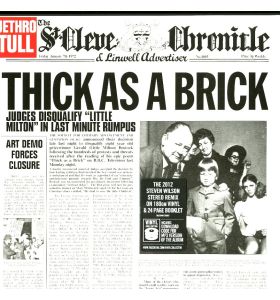Fabrizio De Andrè - Storia di un Impiegato
Vinyl 180g, Lp, Album, Remastered at 192 KHz | Label: Rca Records Label | Year of Release: 2017
Se effettui un ordine superiore a € 300 con due o più prodotti, la spedizione sarà gratuita. Le tempistiche stimate di spedizione sono indicate.
Paga in modo semplice e sicuro con Carta di credito, Contrassegno, AMEX, PayPal e Bonifico bancario. La tua privacy è garantita da connessioni sicure.
Tutti i prodotti sono coperti da Garanzia convenzionale di 2 anni. Risolviamo problemi di qualsiasi natura con professionalità e correttezza.
Solo tramite eMail dal Lunedì al Venerdì dalle ore 9:30 alle 15:00.
Vinyl 180g, Lp, Album, Remastered at 192 KHz | Label: Rca Records Label | Year of Release: 2017 | Genre: Auteur Music | 9 Tracks
ARTIST: Fabrizio De Andrè
ALBUM: Storia di un Impiegato
LABEL: Rca Records Label
FORMAT: Vinile, Lp, Album, Rimasterizzato a 192 KHz
RELEASE DATE: 14-07-2017
FIRST PUBLICATION DATE: 02-10-1973
GENRE: Musica D'Autore
TRACKS:
A1. Introduzione – 1:42
A2. Canzone del Maggio – 2:24
A3. La bomba in testa – 4:01
A4. Al ballo mascherato – 5:12
A5. Sogno numero due – 3:13 (testo: Fabrizio De André e Roberto Dané)
B1. La canzone del padre – 5:14
B2. Il bombarolo – 4:20
B3. Verranno a chiederti del nostro amore – 4:19
B4. Nella mia ora di libertà – 5:09
FORMATION:
Fabrizio De André – voce, chitarra
Nicola Piovani - arrangiamenti e direzione d'orchestra
Silvano Chimenti – chitarra
Daniele Patucchi – basso
Bruno Battisti D'Amario – chitarra
Vincenzo Restuccia – batteria
Nicola Piovani – pianoforte
Giorgio Carnini – sintetizzatore
Antonio Ferrelli – contrabbasso
'Story of an Employee' truly represents a 'magnetic field'. And not so much for the musical influence it had, but for the way it absorbed social and biographical elements from the historical moment in which it was released. Social, because the record (released in 1973) reworks the themes of the 1968 student movements, of the counterculture but also of the era of massacres (Piazza Fontana dates back to 1969). Biographical, because for the first time it forces the anarchic De Andrè, who is outside political currents, to take a position on the changes taking place. So much so that it led him to express a sort of posthumous discomfort with an obviously suffered birth: 'When Storia di un impiegato came out I wanted to burn it. It was the first time I had declared myself politically and I know I had used a language that was too dark, difficult. The idea of the record was fascinating: to give a poetic reading of Sixty-Eight. Instead it came out a political record. And I did the one thing I should never have done: explain to people how to behave'."
Credit by Sentireascoltare.com




































